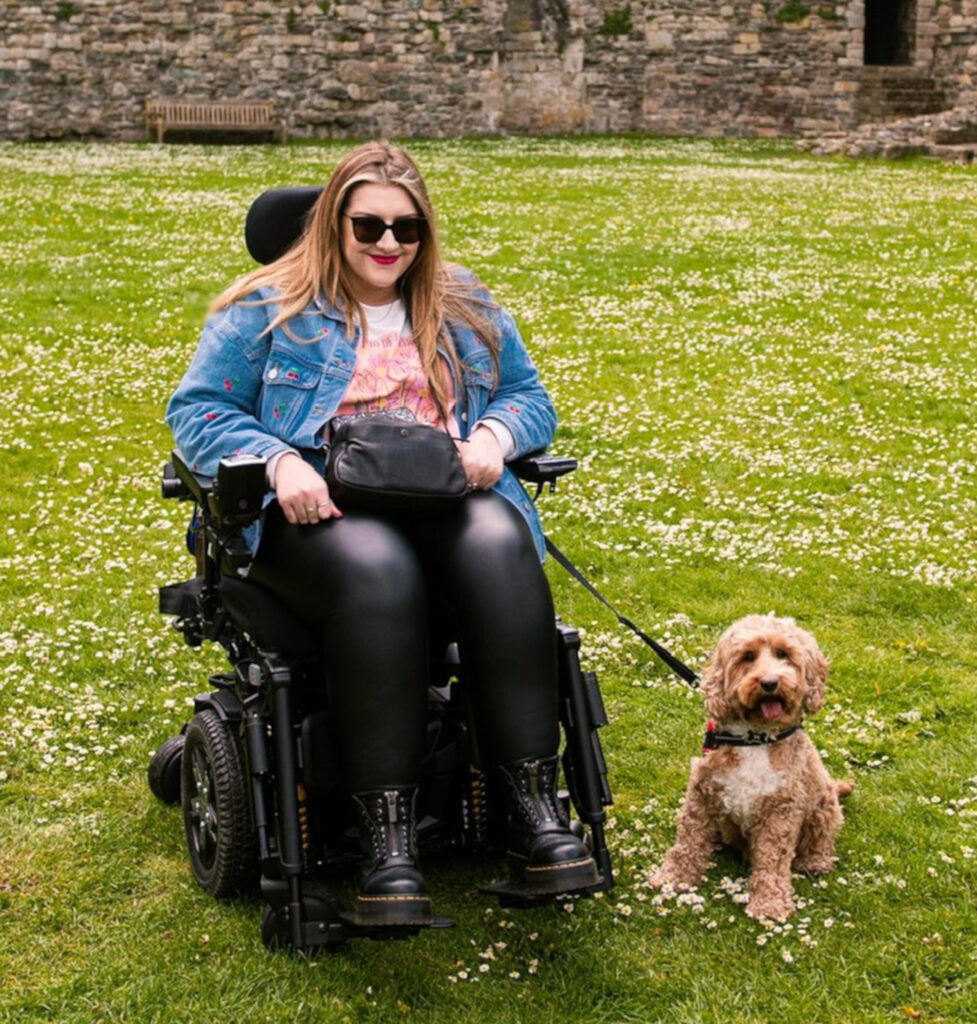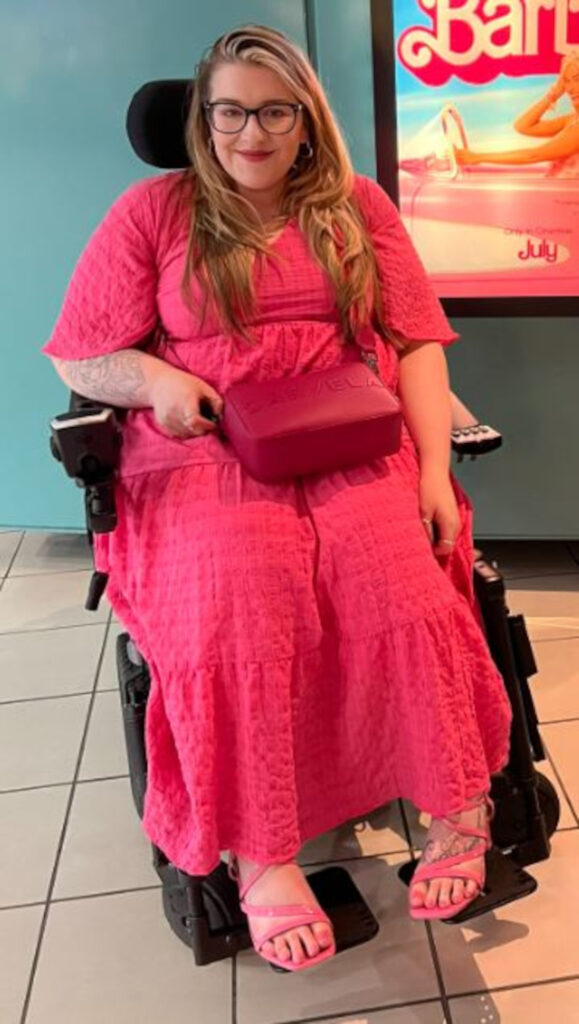A DISABLED woman has hit out at the UK Government after the launch of a new campaign encouraged people to question others on their disabilities.
The policy from Rishi Sunak’s Conservative Party launched on Tuesday and aims to make people aware of asking if others may need help rather than assuming.

However, the message has been slammed by several prominent disability campaigners as well as Sarah Alexander.
Sarah from Liverpool revealed how she worries that the message could lead to more uncomfortable questions from non-disabled people than she already receives.
The 36-year-old told how she has faced multiple uncomfortable questions whilst simply living her life and going about her business.
Questions from the general public in the past have ranged from genuine offers of help to people rudely wanting to ask about Sarah’s sex life.
Sarah uses a wheelchair in her daily life as she lives with hypermobile Ehlers-Danlos Syndrome and posted yesterday about her fears with this new policy.
The writer took to social media, writing: “Please don’t ASK about my disability. I will not be explaining myself, my medical history, my life to strangers.
“This gov campaign others disabled people and puts us in vulnerable positions.
“I don’t want to educate randomers when I’m out living my life. #AskDontAssume is a joke.”
Activist Glenn Faeroy wrote: “When it comes to disabled people, I’ve never noticed the government do anything nice, to be fair.
“So, I don’t trust anything the government do when disabled [people are] involved and ask someone who is disabled. I trust them even less.
“Why should we do all their work? If they want us to do all their work, then how about they pay us to do all their work, then?
“I seriously doubt that. Oh, we are expendable in every sense of the word. This is a campaign to distract people from what’s happening to disabled [people].”
Speaking today, Sarah said: “I do not want to go out and live my life and have to educate strangers, nor do I want to answer enquiries, especially if I am in a vulnerable position on my own as a female wheelchair user and have to guess whether their intentions are good.
“I have had so many negative interactions with the public, asking what is wrong with me, whether I can have sex, asking for my medical history and this campaign enables the public to ask these types of questions.
“I was in a queue at the bank a few weeks ago and a woman asked me what was wrong with me.

“It was incredibly awkward and uncomfortable as I didn’t expect it.
“I replied with ‘a lot of things’ and turned away from her. I don’t understand why it’s anyone’s business and most of the time, they’ve never heard of most of my conditions anyway.
“I’ve been asked ‘can I move my legs’ when at a restaurant by a stranger and was so taken aback I just moved them to show them as I am an ambulatory wheelchair user.
“The only times I have felt unsafe have been when people have shouted insults at me in the street, they’ve not been questions.
“I think the Ask Don’t Assume campaign has an unclear message and invites non-disabled people to ask disabled people intrusive questions we don’t want to answer about ourselves and our health.
“If the campaign is about asking disabled people whether we want assistance opening doors or help crossing streets – which I think was the original intention – then sure.
“I think that is great but the message has been muddied because a lot of the disabled people community are not behind this campaign.
“If they [UK Government] had more voices work on it I think it could have been a lot better.
“I think the campaign could emphasise that it is about asking disabled people if they need assistance with things, ‘can I help you?’
“It is not about asking personal questions. It is not about disabled people taking time and effort to educate non-disabled people. There needs to be a big push to make this crystal clear.”
The UK Government wrote on their website: “This campaign was developed in partnership with disabled people, based on their individual experiences, extensive research and work with disability stakeholders.
“If someone makes assumptions about what you can and can’t do, or what you need, it can cause you to feel undermined, disempowered and frustrated.
“This happens to disabled people all the time. Being an ally to disabled people is about more than just being supportive.
“To be a true ally it’s important to listen to disabled people, to ask them what they are capable of or what they need, and not to assume that we already know.
“This campaign sheds light on how a simple action of #AskDontAssume can make a big difference.”

